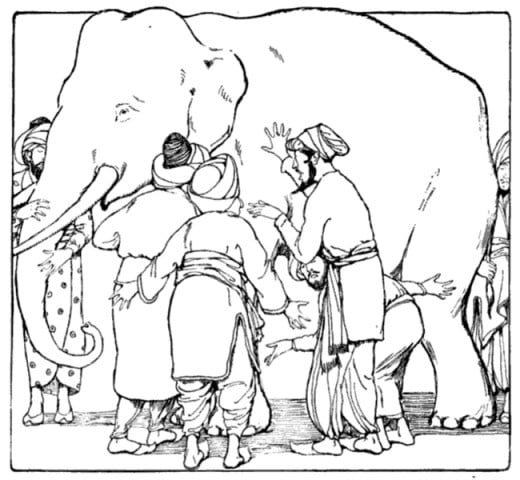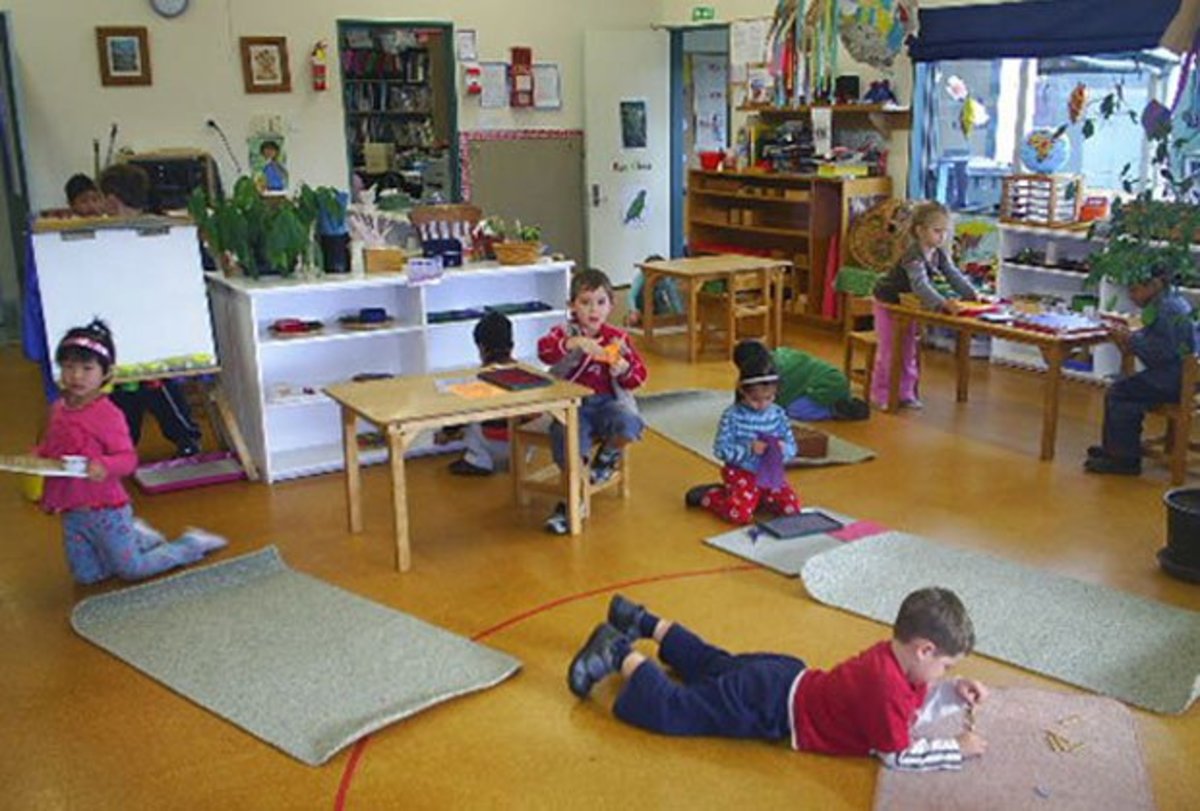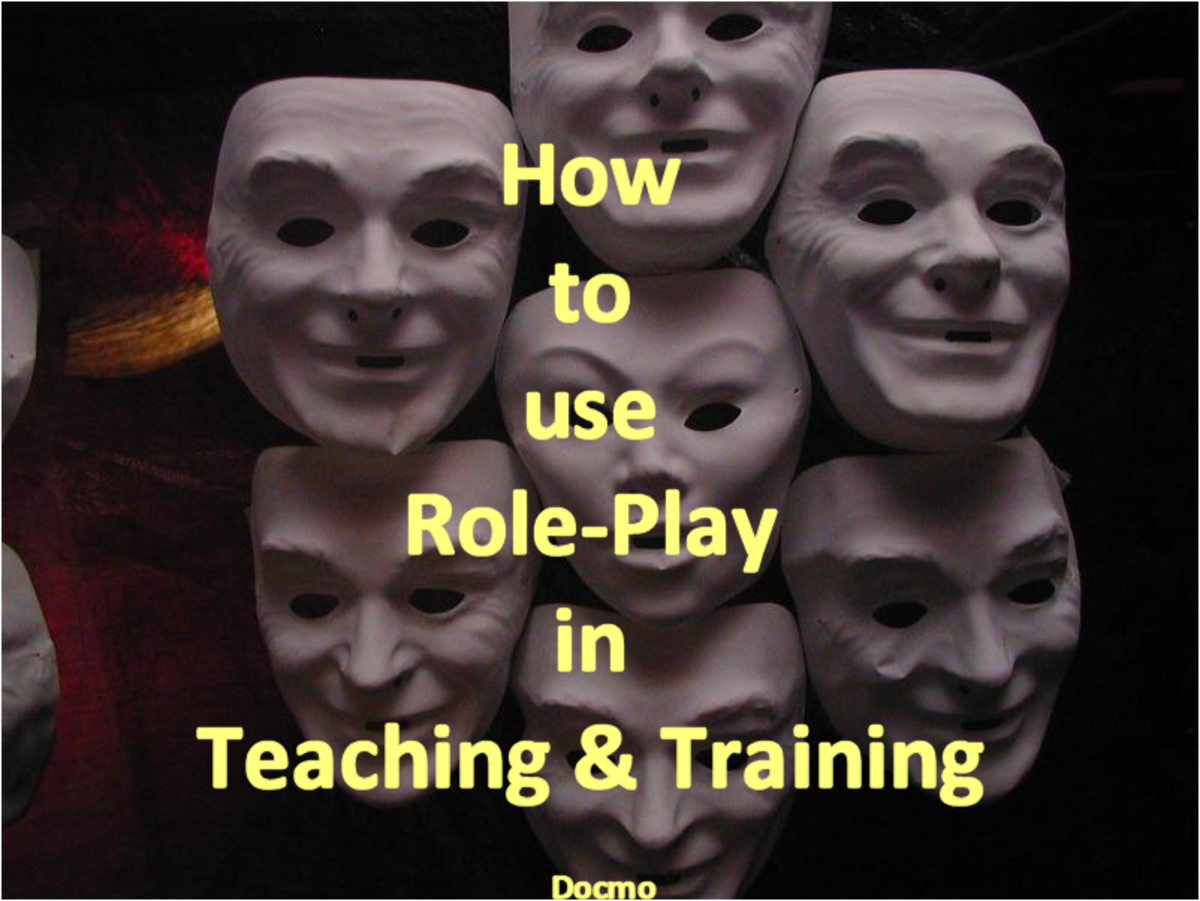Lessons From the Blind Children

Out of my elephant . . . I mean element.
One of the joys of substitute teaching is in experiencing a different classroom almost every day.
The blind class had more differences than the others. The room layout was different. The methods of teaching and learning were different. The amount of individual attention for each student and the number of assistants were different.
The classes were structured to give the blind children a sense of security, and though there were sometimes surprises and special activities, much of the work was accomplished with a lot of structure and little variation. The students knew how to handle work in their familiar environment.
If you work in a densely populated area you may work in many grade levels and many subjects which range from upscale neighborhoods to inner city schools.
You will see classes for mentally challenged and mentally gifted. You will sometimes find yourself mentally expanded and physically expended in the process.
The variety of experience keeps you on your toes and you must be ready to approach each day without preconceived notions. You may see innocent, exuberant or shy Kindergartners one day and face moody, challenging, pre-teen paradoxes (paradoxi?) the next day.
It makes you appreciate the complexity and commonality of humanity.
A Comfort Zone
I was glad to have a "home school" where I knew many teachers well and was often requested. I had formerly been a classroom volunteer and paid assistant there, where my own children attended.
I felt comfortable and accepted as a part of the staff in that school near my home. In one sense, I would have been happy to work there every day.
I also know that when I was called to a school where I was a stranger and outside of my comfort zone, I was forced to be more objective about my manners and methods.
Being in the "neighborly" school didn't challenge and teach me nearly as much as being in less familiar territory.
In a period of about seven or eight years I had a chance to work in the visually handicapped class about about two dozen times. Most of the children, between second and 6th grades, were totally blind.
They loved school, worked very hard, and were both patient and curious, plus being very eager to learn. It became one of my favorite assignments.
A Learning Center for Blind Children
"Oh No, an Elephant!"
One day working in the VH class, I was working with a small group of blind children who were playing a board game for a math activity which had a jungle theme.
They advanced game pieces along following the Braille directions. One came to a space on the board which required the player to back up one space "because an elephant was standing in the path".
The game board, which was also printed for visual learners, required them to read and solve the Braille math problems before progressing.
They seemed to have a great understanding of this fictional game events, advancing through the perilous jungle of the printed game board. I didn't need to do much explaining.
One could not help but think of the parable of the blind men who encountered an elephant, where each perceived the creature with an incomplete understanding of just touching the trunk, or leg, or tail of the animal.
These blind students obviously had a much greater and rounder concept of what it meant to have a huge creature blocking their path. They appreciated and seemed to fully grasp the elephant game experience.
It opened my eyes to a surprising understanding. I always found the VH experiences to be enlightening and memorable.
I was fortunate to have the experience of working in many "special" classes. Most of them were communicatively , developmentally, physically or emotionally handicapped. Some subs decline these assignments, but I always found them to be very interesting and educational for ME.
In some ways it was usually an easier work day, because "special" classes almost always have one or more capable assistants, who do most of the preparation and work.
Sometimes I ended up being an "innocent bystander". But as I returned repeatedly to a particular site, I was able to participate more, and really gained an appreciation of the teachers who teach these kids that have extraordinary challenges.
Another View
In working with the blind children, I literally gained a new perspective which benefited all of my 'regular' teaching. I had been an art major, and am very visually oriented, a visual learner and a visual teacher.
But even in sighted classes there are children who learn best by auditory, tactile or kinesthetic methods. It's always better to "mix up" your methods to reach more students.
Some of my usual favorite lessons had incorporated activities such as drawing, using optical illusions, perspective or color cues.
In working with visually handicapped I felt stripped of my favorite tools. It forced me to widen my strategies.
Expanding Your Senses
Changing pace and perspective is an important part of teaching technique. It is easy to fall into one type of paper and pencil activity after another, but working with blind children helped me to realize that there other senses that can and should be used to keep interest high and involve all types of learners.
Working in special needs classes may not be for everyone, but on the whole, you may be surprised how upbeat and positive these groups can be. If you are a sub teacher who is hesitant or inexperienced in certain situations-- tell the assistants that you are willing to learn. They, and the children, will teach you a lot.
[Click the blue words for another story about working with blind children, one of my all time favorites.]








